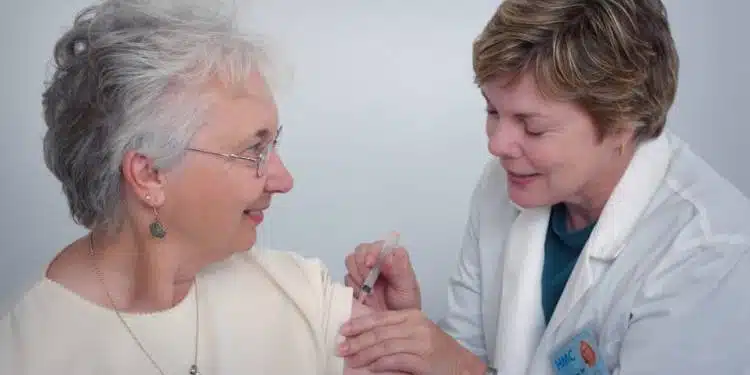by Ellen Blake
Many of us put off our regular screenings, check-ups and vaccines during the pandemic, including me. I focused on keeping myself Covid-free and going to the doctor for routine care with the medical system overwhelmed during that time didn’t seem terribly important.
It’s time to get back on track. Medical screening tests are gifts that keep on giving as they may add years to your life.
Recommended health screenings for women
It’s important to understand the health issues that crop up as we get older. The United States Preventive Services Task Force and other specialty groups compiled the following recommendations to help keep older adults healthy that can be done or ordered during a routine doctor’s visit. Here are the six most important screenings for older women:
Metabolic health tests: blood pressure, cholesterol, blood glucose and weight
Our bodies change as we age, especially for women after menopause. You may not be aware you have elevated blood pressure, cholesterol or glucose levels, but that doesn’t mean it’s not. And those of us who never had a problem with our weight in the past may find we do as our metabolism slows down with age. Screening is important at least once/year, but your doctor may recommend checking more often to help prevent serious problems such as heart attack or stroke.

Breast exam and mammogram
The risk of breast cancer increases with age, and currently accounts for approximately 30% of all new cancer cases in women each year. This means it’s very important to get your mammogram every one-two years depending on your doctor’s recommendation. Early detection may save your life.
Colorectal cancer screening
Regular colorectal cancer screening, such as a colonoscopy, is important starting at age 50to find and treat colon issues. Your medical history and risk factors determine how often you need screening. For some, once every ten years is sufficient, while others may require this procedure every three or five years, continuing until about age 75.
Some people say they put off their colonoscopies because they can’t tolerate the liquid prep. It’s not as bad as it used to be, but still, the prep is not fun. If you are someone who forgoes the test for that reason, talk to your doctor about doing the prep with pills instead, using OsmoPrep or SuTab. Depending on which pill your doctor prescribes for you, there may be side effects. It’s also possible this method may not be quite as effective as the liquid prep. But doing something is absolutely better than doing nothing.
Cervical cancer screening
Many older women still need regular pelvic exams, Pap smears or HPV (human papillomavirus) tests to prevent cervical or vaginal cancer until about age 65.
Pelvic exams can detect issues, such as incontinence, that can certainly impact your quality of life. A Pap test is the traditional test for cervical cancer. According to the most recent recommendations from the American College of Obstetricians and Gynecologists, women should get a Pap test every three years. The HPV screening tests for the human papillomavirus that can cause cervical cancer, for which it’s recommended women get every five years up.
Testing can stop If you had a total hysterectomy, including removal of the cervix, and have no history of cervical cancer or precancerous lesions. Also, if you are older than 65 with no history of cervical cancer and in the past 10 years had three Pap tests in a row that didn’t find cancer, you may be able to stop screening. This is a conversation to have with a trusted health professional.
Osteoporosis screening
It’s so important to keep our bones healthy as we age; osteoporosis is no joke! Weak bones are brittle and can break easily – and fractures happen most often in older women. Hip fractures are especially problematic as they can cause pain, a loss of independence and even death. Doctors recommend this screening at age 65 generally, but women at higher risk may deep to have the test earlier.
Thyroid hormone test
Thyroid problems are hard to spot, yet this important gland in your neck powers the body, producing hormones needed for metabolism. Symptoms of over or under active thyroid glands include hair loss, weight gain or loss, fatigue and depression. A common thyroid condition in women approaching menopause is Hashimoto’s, an autoimmune disorder where thyroid antibodies attack the thyroid gland. The American Thyroid Association recommends screening for thyroid levels at least once every 5 years, especially for women.

Additional health recommendations
The six screenings listed above are extremely important – and we hope you will take them seriously, but that doesn’t mean you should ignore other health recommendations. For example, eye screening can preserve and maximize your vision, and hearing tests can diagnose hearing loss, which is treatable.
In addition, stress and anxiety continue to be a common concern in elderly individuals, and in all age groups, really. In September 2022, for the first time, the USPSTF (US Preventive Services Task Force) proposed that adults aged 64 and under receive screening for anxiety as they recognize the increase in mental health issues over the last few years, including those resulting from the pandemic. Individuals aged 65 and older were not included in the recommendation as the panel found insufficient research about anxiety screening in this age group, but they continue to recommend all adults undergo routine screening for depression. It’s no secret that poor emotional health affects our physical health and it’s important for our doctor to understand the connection between our symptoms and our stress levels.
Finally, doctors recommend vaccines, such as those for covid, pneumonia, shingles and flu for healthy aging.
The bottom line
Just because you are growing older does not mean you can’t continue an active and vibrant lifestyle. If you are proactive about your health, follow your doctor’s recommendations, and continue or develop good lifestyle habits, you likely will feel better and live a happier, healthier life.
This article is the opinion of the author and is not intended to provide medical advice. If you have health concerns, please consult your physician.










